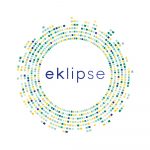Conferences
at the Sustainability Research + Innovation Congress 2024 in collaboration with Sustainability Science Days | 12 June 2024 – Helsinki (Finland)
Alternet Conferences
Since 2013, Alternet has been advancing pan-European research integration, networking and capacity-building through its flagship science conferences.
Alternet’s conferences are held every other year in Ghent, Belgium. Each conference is structured around a cutting-edge issue facing biodiversity, ecosystem services and the science-policy interface. Past topics have included:
- Transformative Changes for Biodiversity and Health (2022)
- The EU Biodiversity Strategy Beyond 2020: Research insights and needs for biodiversity and ecosystem services in Europe (2019) – hosted jointly with Eklipse
- Nature and society: synergies, conflicts, trade-offs (2017)
- Nature and Urban Wellbeing: Nature-Based Solutions to Societal Challenges (2015)
- Science underpinning the EU 2020 Biodiversity Strategy (2013)
Past conferences have been hosted in collaboration with the European Commission and with contributions and keynote speakers from such organizations as IPBES, IUCN, and WWF. Each featured broad participation and contributions from scientists, researchers, policymakers, practitioners and decision-makers of all types.
Past Conferences
2022 – Transformative Changes for Biodiversity and Health
Learn more on the 2022 conference webpage.
2019 – The EU Biodiversity Strategy Beyond 2020: Research insights and needs for biodiversity and ecosystem services in Europe

What should the post 2020 European biodiversity strategy look like? How will research contribute to this strategy and help to define its goals?
The 2019 conference hosted jointly by Alternet and Eklipse and entitled The EU Biodiversity Strategy Beyond 2020: Research insights and needs for biodiversity and ecosystem services in Europe explored these very questions. With the central theme of the post 2020 European biodiversity targets and the potential contributions of scientific research, participants took a proactive role in the consideration and shaping of this critical strategy.
Key outputs:
- Key Messages
- “Sustainability” special edition: Biodiversity and Ecosystem Service: Challenges for the Future
- 14 key recommendations for freshwater biodiversity (IGB)
Learn more about:
2017 – Nature and society: synergies, conflicts, trade-offs
An international conference on synergies, conflicts and trade-offs in the relationship between nature and society

Synergies, conflicts and trade-offs in the relationship between nature and society are key processes in socio-ecological systems. While conflicts are regarded as challenging and difficult trade-offs between ecosystem services are often necessary, the search for synergies and win-win solutions are essential steps in finding lasting solutions to major socio-environmental issues.
Through critical views from a range of disciplines, this conference aimed to develop a deeper understanding of conflicts in human-nature relationships, and to explore the possibility that such conflicts may – through their resolution – actually lead to more sustainable solutions.
Through a mix of plenary sessions and interactive ‘living lab’ type workshop sessions, representatives from a wide range of disciplines (including those who may not be considered the ‘usual players’ in environmental debates) collaborated towards developing a practical guide to nature-related synergies, conflicts and trade-offs, focusing on positive outcomes for nature and society.
The conference was be a meeting place for scientists from the humanities, social sciences (including psychology and health), natural sciences (including behaviour and evolution), local, regional and EU level policy makers and NGOs.
- Pursuing benefits for nature and society – Policy Brief
- Programme
- Presentations
- Organisation led by: Jiska van Dijk (NINA) with support from Tessa Van Santen (INBO)
2015 – Nature and Urban Wellbeing: Nature-Based Solutions to Societal Challenges

Together with the European Commission and under the auspices of the Latvian Presidency of the Council of the European Union, ALTER-Net hosted an international conference on Nature-Based Solutions. Relevant to research in many disciplines and communities, to EU policies and to practitioners, ‘Nature and Urban Wellbeing’ offers rich possibilities to share, learn and connect.
Nature-Based Solutions (NBS) is a rapidly emerging concept covering a range of approaches which use natural processes and species to address societal challenges. Of particular interest are solutions to problems of ecological quality and human health and wellbeing in urban environments – and their rural hinterlands – as well as reducing their global footprints.
Some solutions have existed for a long time, yet there is a growing need for innovative Nature-Based Solutions and for development in deploying and upscaling existing efforts. Such solutions are key to more sustainable and prosperous societies, and are attracting the interest of researchers, developers, governments, businesses and citizens.
2013 – Science underpinning the EU 2020 Biodiversity Strategy

The primary focus of this conference was the objectives and targets of the EU’s 2020 Biodiversity Strategy, which should be realized by the end of this decade. Being a science-policy interface network, ALTER-Net wants to help the EU in realizing these targets by providing scientific knowledge, e.g. by pointing out possible weaknesses, opportunities and necessities, and by helping to find solutions and evidence-based actions.
The starting point for the conference was statements and accompanying questions for every target. These were prepared jointly by ALTER-Net and EU representatives. In this way, active participation of scientists and EU policymakers was ensured. These statements can be found here.
Several side events took place, e.g. a Summer School Alumni event, a full-day workshop on ‘Ecosystem services at the interface between supply and demand’, a workshop on ALTER-Net multi-site experiments and a meeting to exchange ideas for new ALTER-Net initiatives. Additionally, other European initiatives on Biodiversity knowledge gathering were given the floor, e.g. LTER-Europe, ENV Europe and BiodiversityKnowledge (KNEU).





